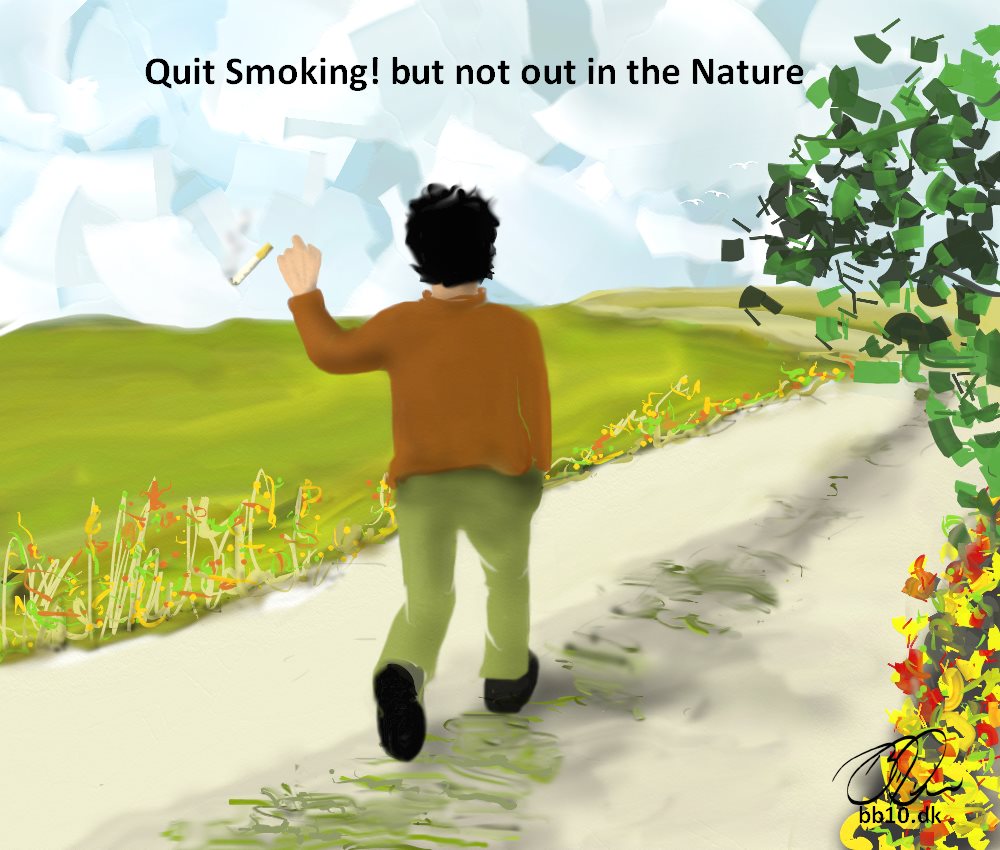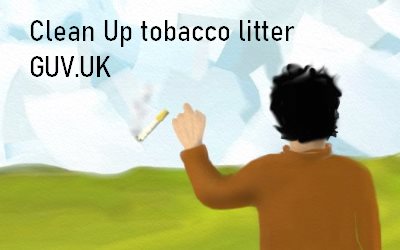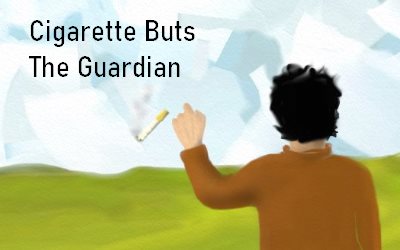Quit Smoking! but not out in the Nature
Quit Smoking! but not out in the Nature
Smokers around the world buy roughly 6.5 trillion cigarettes each year. That’s 18 billion every day. While most of a cigarette’s innards and paper wrapping disintegrate when smoked, not everything gets burned. Trillions of cigarette filters—also known as butts or ends—are left over, only an estimated third of which make it into the trash. The rest are casually flung into the street or out a window.
“There's something about flicking that cigarette butt,” says Cindy Zipf, executive director of Clean Ocean Action. “It's so automatic.”
Cigarette filters are made of a plastic called cellulose acetate. When tossed into the environment, they dump not only that plastic, but also the nicotine, heavy metals, and many other chemicals they’ve absorbed into the surrounding environment.
A recent study found that cigarette butts inhibit plant growth. They also routinely get into waterways, and eventually oceans.
Zipf said cigarette butts have long been at or near the top of the list of items her organization finds during beach cleanups. The billions more that remain in the water are hazardous to marine animals, which can eat them, she said.
“They look a lot more like a morsel of food on a sea surface,” says Zipf.
The pollution problem has only gotten worse in recent years as e-cigarettes have become more popular, she said, because those too are largely made of plastic.
“It's becoming so pervasive,” says Zipf, of both e-cigarette use and the accompanying plastic waste. “It's just a different form of the same thing.”
Source: National Geographic
Smokers’ Attitudes and Behaviors
Smokers’ Attitudes and Behaviors
Cigarette butts are consistently the most collected items in litter clean-up efforts,
which is a costly burden to local economies.
Source: National Library of Medicin






